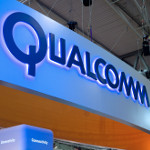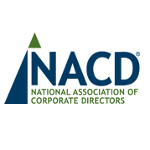Lex Machina, a LexisNexis company, announced the latest expansion of its Legal Analytics® platform into antitrust law, following its recent expansion into securities law in July.
In a release, the company said the move is part of the company’s ongoing plan to expand its Legal Analytics platform beyond intellectual property law to cover every federal practice area, including commercial, product liability, employment, commercial bankruptcy and more.
The release continues:
With the expansion, antitrust litigators will be able to use Legal Analytics to make data-driven decisions based on detailed information from more than 7,800 antitrust cases active since 2009 which have thus far resulted in more than $20 billion in damages awarded. The platform gives attorneys a competitive advantage in antitrust litigation by providing strategic insights about trends in antitrust case timing, resolutions, findings, damages and remedies, as well as actionable intelligence on opposing counsel, law firms, parties, judges, venues, and more. These capabilities also extend to Multidistrict Litigation (MDL) – complex cases that could potentially have hundreds of plaintiffs across dozens of jurisdictions.
“In antitrust litigation, where potentially billions of dollars and companies’ entire futures could be at stake, Legal Analytics for Antitrust helps law firms, in-house counsel and government attorneys develop winning case strategies and data-driven arguments based on the outcomes of thousands of prior cases,” said Josh Becker, CEO of Lex Machina. “The power of Legal Analytics truly becomes apparent in multidistrict litigation where untangling some of the more complex cases could encumber attorneys for months, instead of finding the desired insights in minutes.”
As part of the product development process, Lex Machina interviewed antitrust litigators from top law firms, major corporations and government agencies to better understand their particular antitrust needs. The product team incorporated their feedback directly into the new offering. Some of the new features include:
• Expanded case coverage: Attorneys can now analyze federal cases brought under the Sherman Act, Clayton Act, Robinson-Patman Act, or Federal Trade Commission Act.
• New data source and case linking: Existing Lex Machina case data is integrated with data from the Judicial Panel on Multidistrict Litigation to provide accurate MDL case counts. The platform also links procedurally connected cases to let attorneys analyze them in the right context.
• Antitrust findings analytics: New tags have been added for Class Actions, DOJ/FTC Enforcement cases, Robinson-Patman Act price discrimination cases, and cases where counterclaims were asserted.
• Enhanced case timing analytics: Median days have been added to Dismissal, Class Certification and Summary Judgment Orders — useful for budgeting, resource allocation and legal strategy.
Lex Machina’s Legal Analytics is a “must have” tool for litigators in many of America’s top law firms and corporations. Half of the AmLaw100 law firms use Lex Machina to craft successful litigation strategies, win cases and land new clients. Due to the depth and breadth of antitrust cases, which span every industry, Legal Analytics can help attorneys gain a competitive edge in antitrust litigation.
Prior to launch, Lex Machina mined all of the antitrust cases filed since 2009 and identified a number of important trends and insights, including:
• Judge Marianne Battani of the Eastern District of Michigan has handled the most antitrust cases (393 cases) since 2009 – more than twice as many as the next leading judge.
• The top defendants since 2009 include financial institutions like JPMorgan Chase & Co (270 cases), Goldman Sachs & Co (192 cases), UBS (188 cases), and Deutsche Bank (185 cases); electronics companies like Panasonic (265 cases) and Hitachi (253 cases); and several airlines, including Delta (231 cases), American Airlines (212 cases), Southwest (211 cases), and United Airlines (206 cases).
• Cotchett Pitre & McCarthy is the top law firm representing plaintiffs (255 cases), followed by Miller Canfield (248 cases), and Spector Roseman Kodroff & Willis (236 cases).
• Latham & Watkins (340 cases), Gibson Dunn & Crutcher (334 cases), and Freshfields Bruckhaus Deringer (294 cases) are the top law firms representing defendants.
• The median time to the grant of a permanent injunction is just under a year and a half (507 days).
• Judgments favoring the defense side – especially findings of “no antitrust injury,” “no Sherman Act violation § 1 (restraint of trade), and “no Sherman Act violation § 2 (monopolization) – tend to be issued as a judgment on the pleadings or as a summary judgment.
For more information about Lex Machina’s newest practice area and to get an early look at findings from Lex Machina’s first Antitrust Litigation Report, click here. Register here for Lex Machina’s half-hour launch webcast entitled “Legal Analytics for Antitrust Litigation,” scheduled for November 17th at 11:00 am PST (2:00pm EST).



 The U.S. Department of Justice has filed lawsuits to block the proposed mergers of four of the nation’s five biggest health insurers,
The U.S. Department of Justice has filed lawsuits to block the proposed mergers of four of the nation’s five biggest health insurers,  The National Association of Corporate Directors’ 2016 edition of Governance Challenges combines guidance from five strategic content partners of the NACD with broad M&A expertise. The report addresses the importance of early board engagement in strategy, the need for proactive dialogue with all key stakeholders, and the imperative to balance short-term and long-term goals throughout the M&A process.
The National Association of Corporate Directors’ 2016 edition of Governance Challenges combines guidance from five strategic content partners of the NACD with broad M&A expertise. The report addresses the importance of early board engagement in strategy, the need for proactive dialogue with all key stakeholders, and the imperative to balance short-term and long-term goals throughout the M&A process. A lawsuit alleges Gilead Sciences
A lawsuit alleges Gilead Sciences  Practical Law and Honigman Miller Schwartz & Cohn LLP have posted a free on-demand webinar titled “Insider Perspective: Antitrust Treatment of Physician Practice Acquisitions,” a discussion of the decisions in Saint Alphonsus, et al v. St. Luke’s, et al and Federal Trade Commission, et al v. St. Luke’s, et al, the first cases to address the antitrust implications of hospital acquisitions of physician practices.
Practical Law and Honigman Miller Schwartz & Cohn LLP have posted a free on-demand webinar titled “Insider Perspective: Antitrust Treatment of Physician Practice Acquisitions,” a discussion of the decisions in Saint Alphonsus, et al v. St. Luke’s, et al and Federal Trade Commission, et al v. St. Luke’s, et al, the first cases to address the antitrust implications of hospital acquisitions of physician practices.